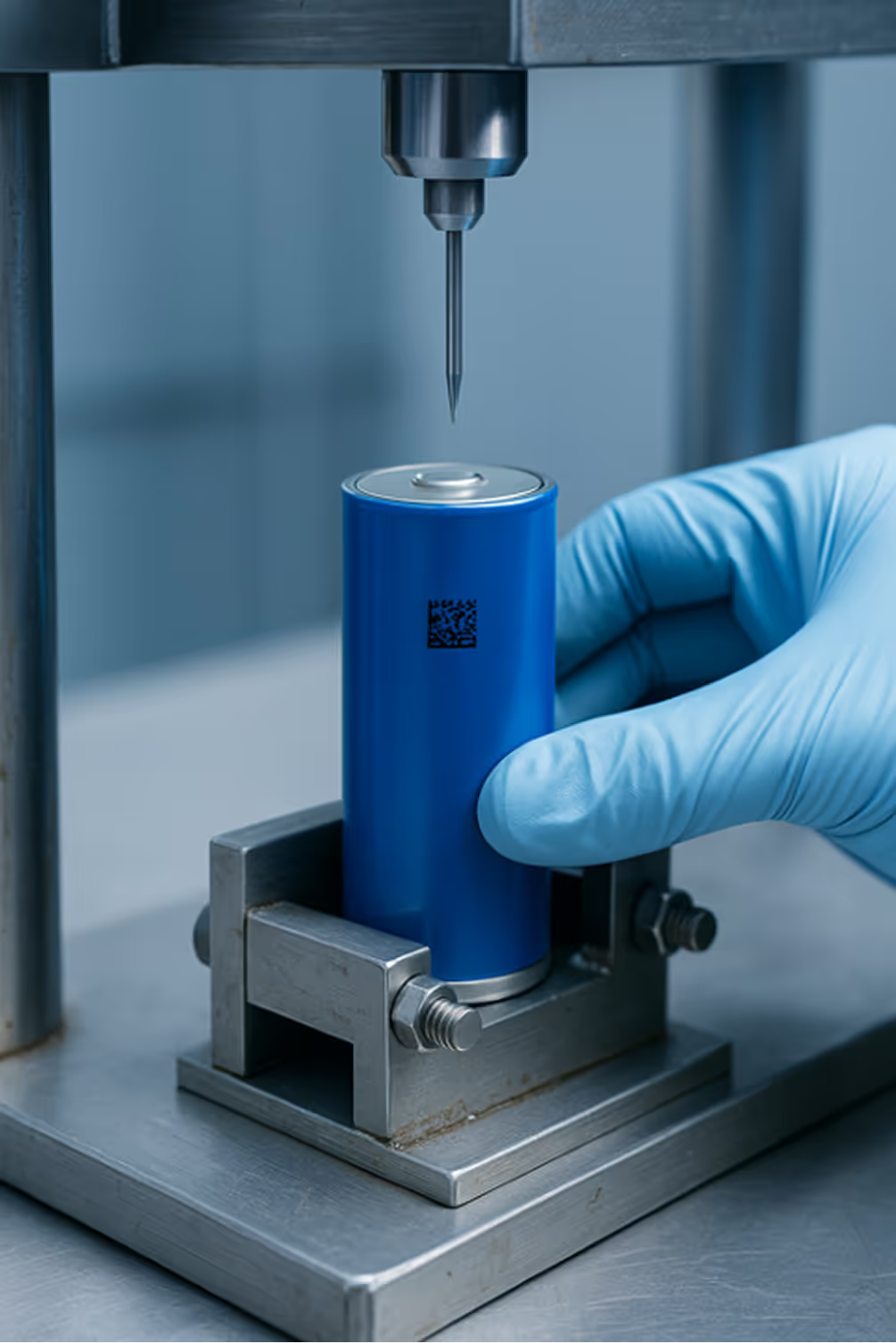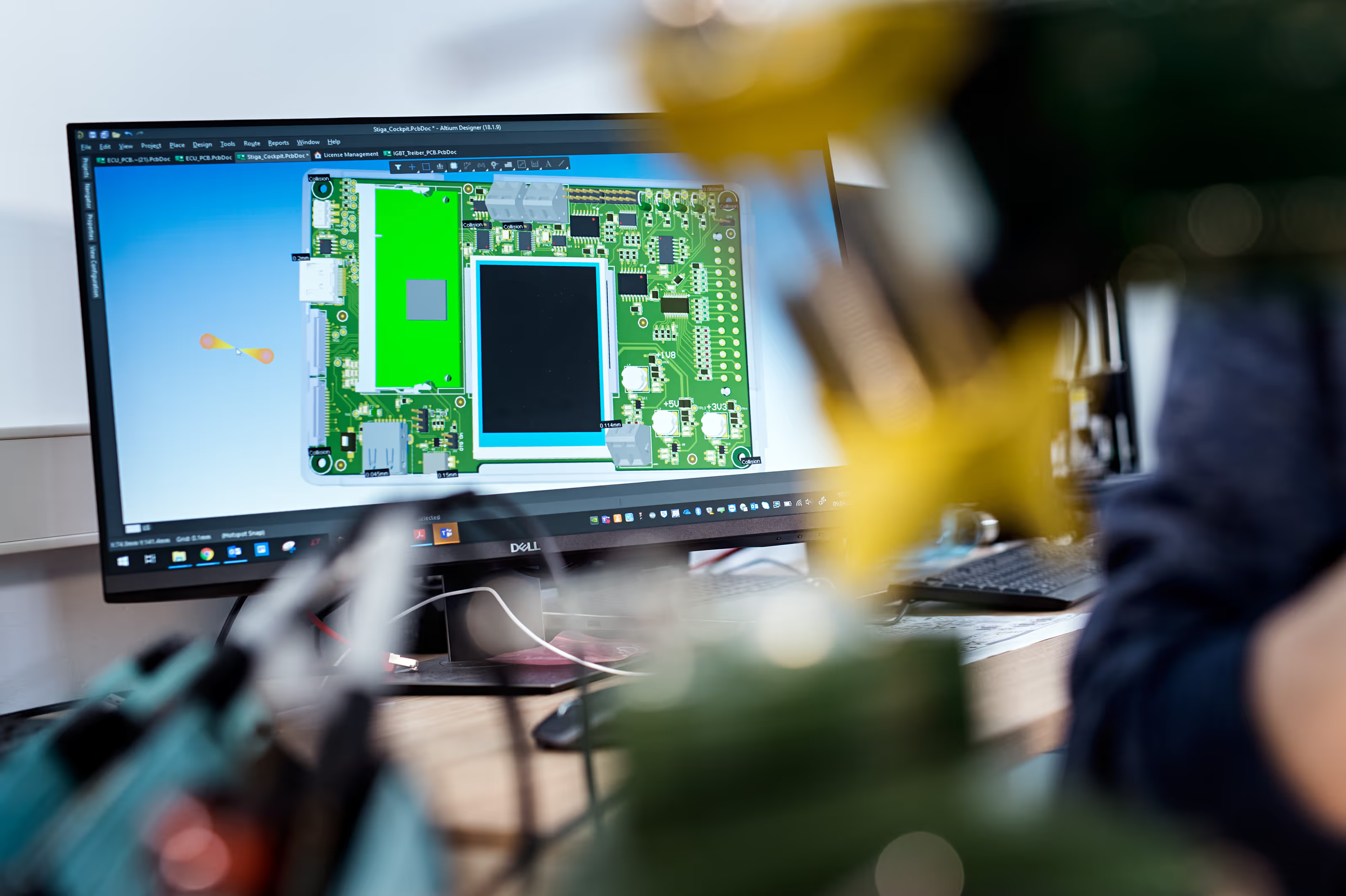Cyber Security
Cyber security is the practice of protecting systems, networks, and data from digital attacks, ensuring confidentiality, integrity, and availability in operations.
Cyber security encompasses the strategies, technologies, and processes designed to safeguard digital assets from unauthorized access, theft, or damage, playing a critical role in modern industries where data-driven operations and interconnected systems are prevalent. In the battery industry, which is rapidly evolving with advancements in electric vehicles (EVs) and energy storage, robust cyber security is essential to protect intellectual property, ensure operational safety, and maintain compliance with global standards. As professionals in this field navigate complex supply chains and innovative technologies, understanding and implementing effective cyber security measures can prevent costly disruptions, enhance trust with stakeholders, and support sustainable growth.
The Importance of Cyber Security in the Battery Sector
For battery manufacturers, component suppliers, OEMs, and EV producers, cyber security is not merely an IT concern but a fundamental aspect of business resilience. The industry relies heavily on proprietary data, such as battery chemistry formulations, manufacturing processes, and performance metrics, which are prime targets for cyber threats. A single breach could lead to intellectual property theft, production halts, or safety incidents, underscoring the need for integrated security frameworks that align with industry-specific risks and regulations.
Safeguarding Intellectual Property and Innovation
Intellectual property (IP) is the lifeblood of the battery industry, driving competitive advantage through unique designs and efficient production methods. Cyber security measures, such as encryption and access controls, help protect sensitive IP from espionage or theft, ensuring that innovations in battery technology remain secure throughout research, development, and commercialization phases. By implementing data loss prevention strategies, companies can mitigate risks associated with unauthorized data transfers or leaks, preserving their market position and fostering continuous innovation.
Securing Supply Chain and Partner Networks
The battery supply chain involves multiple stakeholders, from raw material suppliers to end-users, creating vulnerabilities where cyber attacks can propagate. Ensuring secure communication channels and verifying the integrity of partners through cyber security audits helps prevent incidents like tampering or data interception. This is particularly vital for maintaining the quality and safety of battery components, as any compromise could lead to recalls, financial losses, or reputational damage.
Common Cyber Threats in Battery Manufacturing and EV Ecosystems
Battery industry professionals face a diverse range of cyber threats that can exploit weaknesses in digital infrastructure. These include ransomware attacks that encrypt critical data, phishing schemes targeting employees, and vulnerabilities in connected devices, all of which can disrupt operations and compromise safety. Recognizing these threats is the first step toward developing effective defense mechanisms tailored to the industry's unique environment.
Ransomware and Operational Disruptions
Ransomware poses a significant risk by locking access to essential systems, such as production control software or battery management systems (BMS), demanding payment for restoration. In battery manufacturing, this can halt assembly lines, delay deliveries, and incur substantial costs. Implementing regular backups and incident response plans ensures quick recovery and minimizes downtime, safeguarding against extortion attempts and maintaining operational continuity.
IoT and Industrial Control System Vulnerabilities
With the integration of Internet of Things (IoT) devices and industrial control systems in battery production, vulnerabilities in these technologies can serve as entry points for attackers. For instance, a compromised sensor in a BMS might falsely report battery status, leading to overheating or failure. Conducting vulnerability assessments and patch management helps identify and address these weaknesses, reducing the likelihood of incidents that could affect product safety and reliability.
Compliance and Standards for Cyber Security in the Battery Industry
Adhering to international cyber security standards is crucial for battery companies to demonstrate reliability, meet regulatory requirements, and facilitate global trade. Standards such as ISO/IEC 27001 for information security management and automotive-specific frameworks like ISO/SAE 21434 provide guidelines for risk assessment, implementation, and continuous improvement, helping organizations build trust with customers and partners.
ISO/IEC 27001 and Information Security Management
ISO/IEC 27001 offers a systematic approach to managing sensitive company information, ensuring it remains secure through policies, procedures, and technical controls. For battery manufacturers, certification under this standard can enhance credibility and streamline compliance with regional regulations, such as the EU's General Data Protection Regulation (GDPR), which protects customer data. By integrating risk management processes, companies can proactively address threats and align with best practices in cyber security.
Automotive and EV-Specific Requirements
In the EV sector, standards like ISO/SAE 21434 focus on cyber security engineering throughout the vehicle lifecycle, including battery systems. This involves secure development practices, threat analysis, and incident response planning to protect against attacks that could compromise vehicle safety or performance. Compliance with these requirements is essential for OEMs and suppliers to avoid penalties, ensure product acceptance, and support the broader adoption of electric mobility.
Best Practices for Implementing Cyber Security in Battery Operations
Adopting a proactive approach to cyber security involves combining technical measures with organizational policies to create a resilient defense strategy. Key practices include employee training, regular testing, and collaboration with experts to address evolving threats, all of which contribute to a culture of security awareness and operational excellence in the battery industry.
Employee Training and Security Awareness
Human error is a leading cause of security breaches, making ongoing training programs essential for staff at all levels. Educating employees on recognizing phishing emails, using strong authentication methods, and following data handling protocols reduces the risk of inadvertent incidents. Simulated attack exercises can further reinforce these skills, ensuring that teams are prepared to respond effectively to real-world threats.
Regular Audits, Penetration Testing, and Continuous Monitoring
Conducting periodic cyber security audits and penetration tests helps identify vulnerabilities in systems, networks, and applications before they can be exploited. For battery operations, this might involve testing BMS software or production networks to ensure they resist attacks. Coupled with continuous monitoring tools, these practices enable rapid detection and response to anomalies, supporting a dynamic security posture that adapts to new challenges.
In conclusion, cyber security is integral to the success and sustainability of the battery industry, protecting critical assets, ensuring regulatory compliance, and enabling innovation in a competitive landscape. By embracing comprehensive security measures, professionals can mitigate risks, enhance operational efficiency, and contribute to the safe advancement of battery technologies. As the industry continues to grow, staying vigilant and informed about cyber threats will be key to navigating future challenges and opportunities.
PEM Motion supports battery manufacturers, component suppliers, OEMs, and EV producers in navigating complex requirements such as testing procedures, documentation, and compliance with international standards. As an international engineering and consulting partner for battery technology, PEM Motion offers key expertise in Battery Testing & Compliance, BMS Solutions, Training, and Operations Support, helping clients secure their systems and innovate safely by addressing cyber security risks within broader operational frameworks.
Our Focus
What we do

BATTERY Compliance
We ensure your batteries meet all compliance standards for safety and performance.

OPERATIONS & TRAINING
We empower your team with comprehensive training and operational consultation for battery technology and energy storage solutions.

BMS SOLUTIONS
We offer a wide range of Li-Ion battery solutions and Battery Management Systems for various industries.












